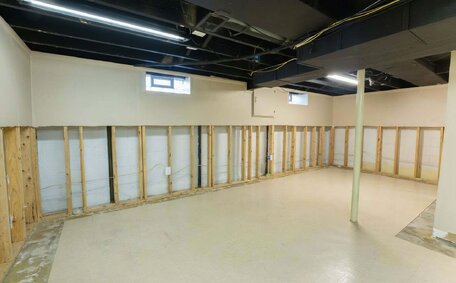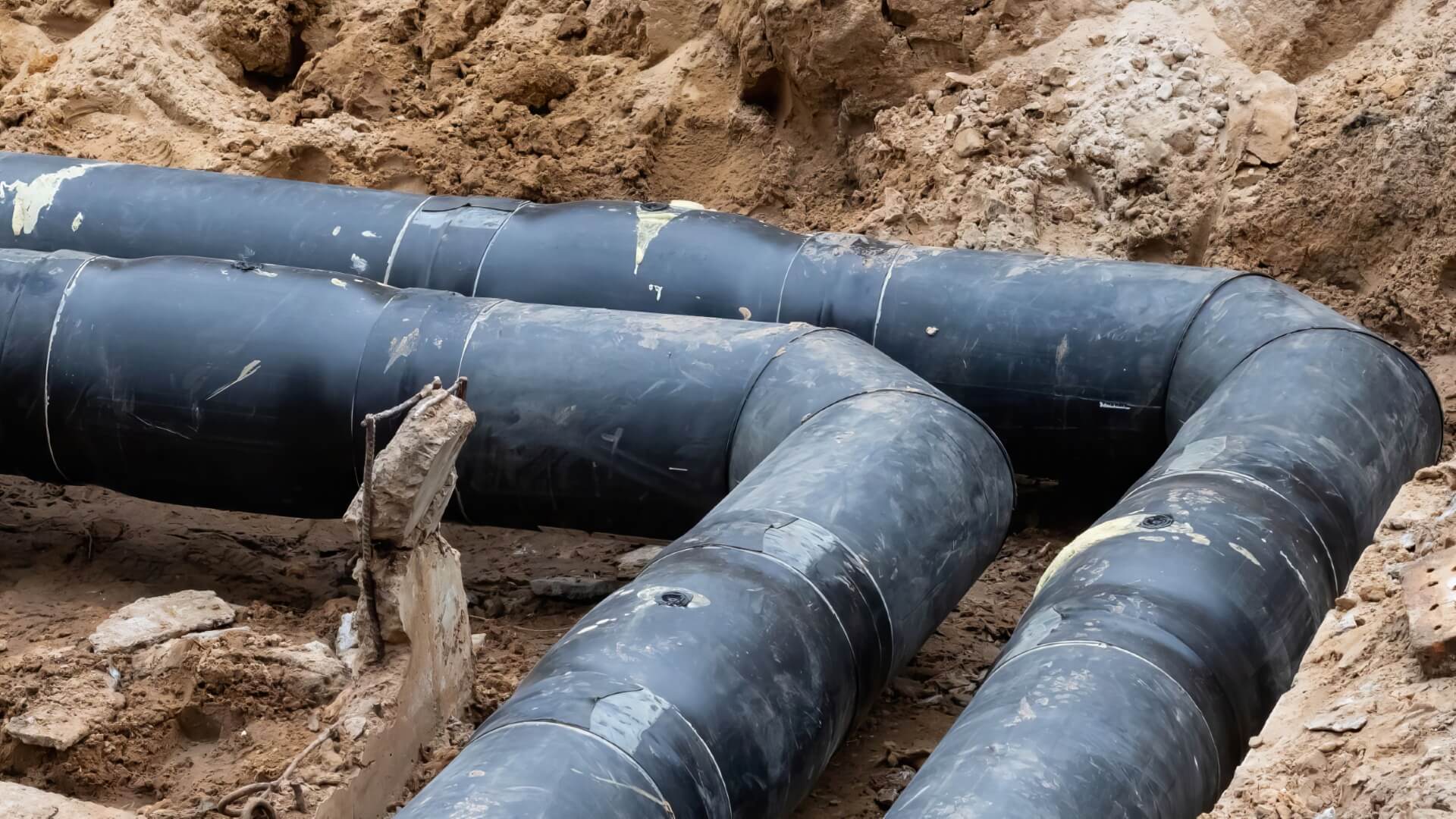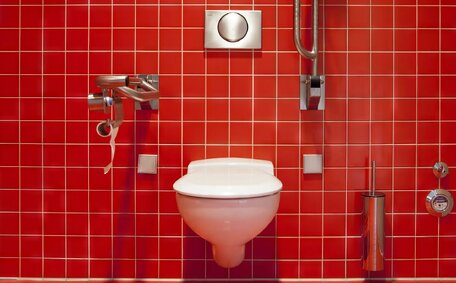Introduction to Common Plumbing vs Appliance Problems
When issues arise in your home, it can be difficult to determine whether you have a plumbing problem or an appliance malfunction. Understanding the differences between plumbing issues and appliance malfunctions is key for effective troubleshooting. The team at St Peters Plumbing, featuring skilled residential commercial plumbers, can help homeowners differentiate between plumbing and appliance problems with their extensive knowledge and experience.
Leaks, clogged drains, and hot water system failures are common residential plumbing problems that can be puzzling. Symptoms like low water pressure, strange noises, electrical issues, or gas leaks could indicate a problem with either your plumbing or an appliance. Our specialists deftly tackle plumbing jobs; they’re able to meld plumbing gas expertise to bring about swift resolutions, prepared to scrutinise systems, precisely diagnose issues, and carry out repairs.
Engaging St Peters Plumbing ensures your water system is well maintained, saving you time, effort, and money. We offer more than mere technical expertise; we provide comprehensive solutions that save your time and money swiftly and effectively.
Typical Signs of Plumbing Issues
Several signs may point to common plumbing problems in your home or business environment. Some of the most evident signs of plumbing issues include:
- Issues with a blocked drain, manifesting as a clogged drain or slow-draining sinks, tubs, showers - Debris, grease, and hair buildup, amongst other obstructions, can be culprits of compromised drainage.
- Leaking water pipes - Leaks under sinks, behind walls, or on ceilings can cause complications with your water heater, cracked pipes, loose connections, corrosion, freezing, high water pressure, and beyond.
- Low water pressure - Partial obstructions, including tree roots, can lead to reduced water flow from faucets and showers.
- Water leaks - Knocking, banging or gurgling sounds coming from pipes can disguise the subtle hiss of escaping water, indicating serious leak issues.
- Burst pipes - Rapid water leakage, flooding, water spots on walls/ceilings are signs of ruptured pipes. This requires an emergency plumber for immediate repair.
- Gas fitters expertise - The smell of rotten eggs and other unusual odours may signal that it’s time to consult experienced gas fitters for potential leaks from type B gas appliances connections or gas lines.
Your local commercial plumber, well-versed in the intricate nuances of residential commercial plumbing, understand the variances between residential and commercial plumbing issues frequency in these various environments. Commercial plumbing often requires more frequent maintenance due to increased usage. If these signs lead to plumbing complications in your commercial buildings, contact a skilled professional plumber who can diagnose and address the issues promptly.
Common Appliance Breakdowns
On the other hand, an appliance repair professional can tackle unique breakdowns unrelated to your plumbing system. Some dilemmas can also be classified as typical appliance malfunctions, which include:
- Refrigerators failing to keep items cold due to issues like worn seals or failing thermostats
- Your dishwasher not draining properly may be associated with food buildup, drain line obstructions or defective pumps
- Glitches in your washing machine, manifesting as leaks, frequently arise due to impaired hoses, valves or seals
- Should your appliances like dishwashers cease to receive hot water, It’s a sign that you then need to inspect your hot water systems for complications
- Strange odours or moisture around dryers indicating vent blockages or lint buildup
When appliance breakdowns occur, steps you can take on your own to troubleshoot include checking if the issue is with your appliance or if there’s an emerging need to replace your home’s plumbing infrastructure:
- Check that the drainage system, water and power supplies are connected and functioning
- Make sure drainage lines are clear and not clogged
- Test different cycles/settings to isolate the problem
- Inspect hoses, seals, filters and other components
- Have an appliance repair professional inspect the type appliance causing issues when needed
It’s vital to determine whether appliance malfunctions are due to the appliance itself or your plumbing system; this knowledge can prevent many headaches. We highly recommend our team at St Peters Plumbing, with their expertise to diagnose any appliance- or plumbing-related issues in your home.
DIY Troubleshooting Tips
Before DIY troubleshooting, ensure you turn off the mains and electrical breakers or call a plumber for professional help to mitigate risks and prevent damage. Wear protective equipment like goggles and gloves for added safety.
For plumbing issues:
- Keep your pipes’ supply lines and drainage checked for any visible cracks or blockages. Clear out any debris clogging your plumbing fixtures.
- Pour hot water mixed with a reliable drain cleaner down your sink or any sluggish-draining fixtures. Employ rooter plumbing techniques like a plunger or drain snake if required.
- Listen attentively for running water or hissing to find out more about any potential leaks. Inspect pipe joints using flashlights. Check under sinks for signs of water damage.
- Test sinks, showers, and toilets to ensure a flowing supply of clean water and to check for pressure issues. Clean aerators or showerheads if flow seems restricted.
For appliance problems:
- Check that all appliances are powered by verifying that the relevant switches are on. Check the fuse box or circuit breakers to ensure electricity is being supplied.
- Ensure appliances are connected to the appropriate water line and robust plumbing drainage systems correctly, with no detached hoses.
- Clean out lint traps in clothes dryers. Check and unclog refrigerator condenser coils.
- Inspect appliance parts like seals, valves and pumps for damage allowing leaks or other visible issues.
If problems persist after DIY efforts, seek appliance repair and plumbing solutions from St Peters Plumbing to accurately diagnose and repair Plumbing or appliance faults. For proficient gas fitting and plumbing work, your plumber from Our team can handle the job, ensuring it’s done right with the essential skills, tools, and years of experience.
When to Call a Professional
Understanding plumbing issues and knowing when to enlist a professional plumber or appliance technician instead of attempting DIY fixes is critical:
- If you detect a gas odour or suspect a gas leak, immediately call the fire department and your gas appliance service provider. Never attempt to fix a gas leak problem your own safety is at stake.
- If your property requires major repairs due to flooding or water damage, halting water penetration and drying out areas like floors and walls require professional equipment.
- There are signs of a burst pipe like water bubbling from walls or ceilings - A skilled plumber can come out to find pipe breaches within infrastructure and lessen mould risks.
- Sewer line clogs are causing sewage backups - Attempting to unclog main drains risks further contamination and property damage if not done properly.
- You lack the proper tools, protective gear or technical skills - Consider that you should use the expertise of a licensed professional with specialised training and equipment the average homeowner does not.
- Problems are more likely to recur despite DIY troubleshooting efforts - Persistent issues can often have underlying causes only an expert can pinpoint.
St Peters Plumbing’s team of licensed gas professionals is fully insured to manage all gas system concerns safely and effectively. Our services offer quick responses to plumbing emergencies related to gas or propane, allowing you to repair or replace faulty elements with a proficient gas fitter available 24/7 for urgent needs. Contact us on 1300 349 338 to evaluate the necessity for repair replacement of troublesome components, as discerned by our expert team.
Preventative Maintenance
Preventative measures are essential to prolong the life and performance of your plumbing systems and appliances. St Peters Plumbing offers these key maintenance tips:
For plumbing:
- Inspect exposed pipes and supply lines monthly for corrosion, leaks, cracks or damage. Act promptly to ensure repairs are undertaken quickly to prevent the progression to more severe problems.
- Engage a professional to thoroughly flush out main sewer lines and drains annually to eliminate any recurring clogs or obstructions such as tree roots.
- Test sinks, showers and toilets for adequate water flow and pressure. Clean fixtures like showerheads and faucet aerators if needed.
- Check that all valves, pumps and pipe connections are functioning properly. Replace worn washers, fittings and seals.
- Have professionals service water heaters as recommended (every 1-3 years). Flushing mineral deposits prolongs tank life.
For appliances:
- Clean out lint traps and vents in clothes dryers after each load to maintain air flow efficiency.
- Check refrigerator door seals annually. Replace any worn seals allowing cold air leaks.
- Descale washing machines and dishwashers regularly to prevent mineral buildup which can damage internal parts.
- Inspect appliance hoses and seals for cracks or leaks. Even just one worn seal should be promptly replaced.
- Annual deep cleaning of ovens, ranges, and vent hoods by professionals removes grease and reduces fire risks to your appliances.
St Peters Plumbing’s preventative maintenance services include carbon monoxide testing to ensure the safety and longevity of your home’s plumbing and appliances. Call us on 1300 349 338 to learn more about inspections and maintenance schedules.






